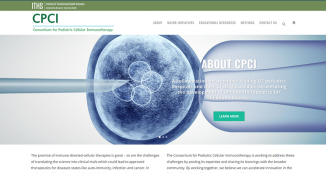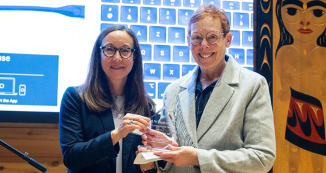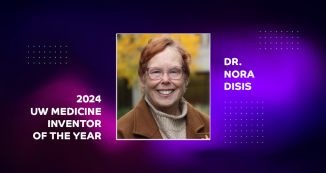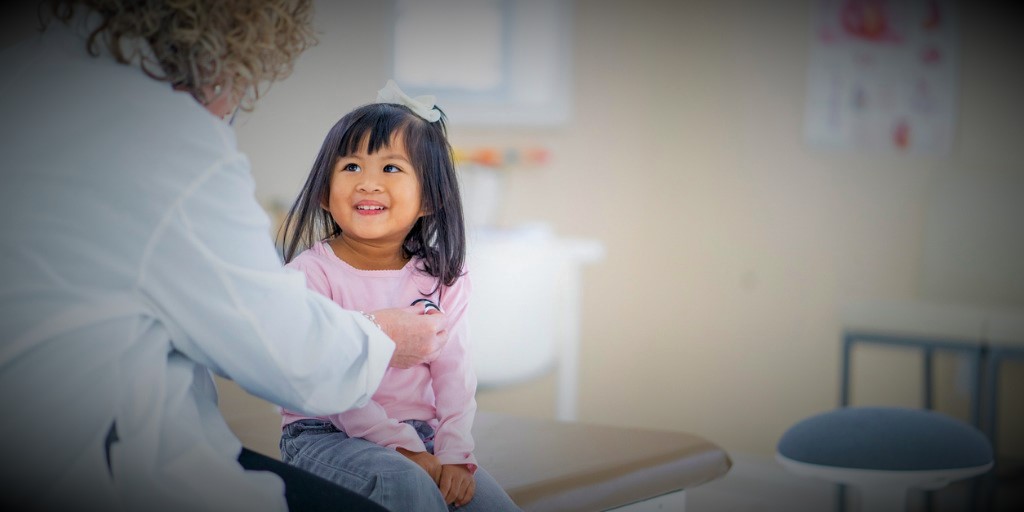
28 Oct Consortium for Pediatric Cellular Immunotherapy: First Year & Thriving
In 2018, five children’s hospital from across the country led by Drs. Bonnie Ramsey and Julie Park received a seven million-dollar, five-year NIH-CTSA Collaborative Innovation Award (UO1). This is how the Consortium for Pediatric Cellular Immunotherapy (CPCI) came together with the intention to help accelerate access to pediatric immunotherapy trials. The Institute of Translational Health Sciences (ITHS) is its designated CTSA.
According to NIH National Cancer Institute, “Immunotherapy leverages the ability of the immune system to recognize and destroy infected, damaged, and transformed cells … While immunotherapeutic approaches have been used to successfully treat a limited number of childhood cancers, … there are currently no effective immunotherapy options for most patients with high-risk or difficult-to-treat childhood cancers.” This is why the work being done by the CPCI team is instrumental to “… develop new immunotherapies and improve the effectiveness of current immune therapy treatments to reduce the burden of cancer in children.”
… there are currently no effective immunotherapy options for most patients with high-risk or difficult-to-treat childhood cancers. This is why the work being done by the CPCI team is instrumental to … develop new immunotherapies and improve the effectiveness of current immune therapy treatments to reduce the burden of cancer in children.
The work of the CPCI will identify best practices for the development and implementation of these innovative immunotherapy clinical trials to not only accelerate that ability to offer them to patients, but to also assist investigators throughout the world more efficiently and effectively develop new cellular immunotherapies.
As the former Director for the coordinating center for the Cystic Fibrosis Foundation Therapeutics Development 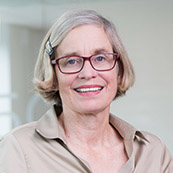 Network (TDN) and co-PI for ITHS, Dr. Ramsey understood how this infrastructure grant opportunity could be used to build an effective, multi-institutional team to do the work, while leveraging the resources of the ITHS to support and disseminate it. In its first year, the PIs have worked with the ITHS Evaluation Program to plan the roadmap of desired grant outcomes along with the activities that underpin them and the metrics to measure their success and will work closely with the Education and Communication Programs to accelerate dissemination of their work. “It has been very rewarding watching the CPCI expand from early single site to multi-center trials expediting the translation of immunotherapy approaches inpediatric cancer. The first year has been amazingly production and I look forward to initiating new trials in the coming years, ” shared Dr. Ramsey.
Network (TDN) and co-PI for ITHS, Dr. Ramsey understood how this infrastructure grant opportunity could be used to build an effective, multi-institutional team to do the work, while leveraging the resources of the ITHS to support and disseminate it. In its first year, the PIs have worked with the ITHS Evaluation Program to plan the roadmap of desired grant outcomes along with the activities that underpin them and the metrics to measure their success and will work closely with the Education and Communication Programs to accelerate dissemination of their work. “It has been very rewarding watching the CPCI expand from early single site to multi-center trials expediting the translation of immunotherapy approaches inpediatric cancer. The first year has been amazingly production and I look forward to initiating new trials in the coming years, ” shared Dr. Ramsey.
Joined by nearly 40 colleagues from Children’s Hospital Colorado, Children’s Hospital Los Angeles, Children’s National Health System, UCSF Benioff Children’s Hospital Oakland, Seattle Children’s, UW and FHCRC, the Consortium just hosted their Annual Meeting to review the work completed in the first year and commit to activities for the coming year.
In the next year the group expects to
- publish manuscripts that will share best practices in the areas of cellular immunotherapy GMP and correlative studies
- establish biobank capabilities to further correlative research
- cross-audit GMP facilities
- create training programs for in-demand GMP employees
- conduct patient/provider surveys and retrospective studies to better understand the barriers to accessing this novel treatment
- work with researchers at FHCRC to develop better guidelines for revaccination of patients post-treatment, a nascent field today.
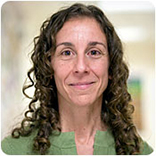 Dr. Julie Park, CPCI’s other Principal Investigator, said of their work, “We and others have provided proof that cellular immunotherapy can impact, and even cure, some forms of childhood cancer and infectious disease. We need to harness this activity, break down the barriers to developing and implementing this novel therapy and disseminate our findings so that all children can benefit from cellular immunotherapy. We are just getting started, but I am positive that our CTSA grant will accelerate our ability to extend novel cellular immunotherapy towards the treatment of cancer and a wide spectrum of childhood disease.”
Dr. Julie Park, CPCI’s other Principal Investigator, said of their work, “We and others have provided proof that cellular immunotherapy can impact, and even cure, some forms of childhood cancer and infectious disease. We need to harness this activity, break down the barriers to developing and implementing this novel therapy and disseminate our findings so that all children can benefit from cellular immunotherapy. We are just getting started, but I am positive that our CTSA grant will accelerate our ability to extend novel cellular immunotherapy towards the treatment of cancer and a wide spectrum of childhood disease.”
We all look forward to seeing what great strides the consortium will take in the fight against pediatric cancer in the coming years.
For more information about the CPCI services and work, please contact Elizabeth Gruber at Elizabeth.Gruber@seattlechildrens.org.





